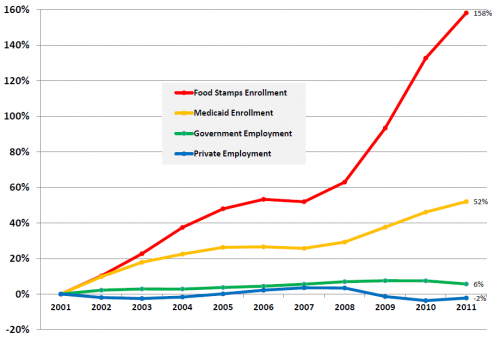One of the homilies one hears all the time from economists is "Never reason from a price change." What does this mean? Prices emerge in the market at the intersection of the supply and demand curve. Often, when (say) a price of a commodity like oil decreases, pundits might reason that the demand for oil has suddenly dropped. But they don't necessarily know that, not without information other than just the price change. The price could have dropped because of a shift in the supply curve or the demand curve, or perhaps some combination of both. We can't know just from the price change.
Which gets me thinking about the last election. Trump won the election in part because several states like PA and WI, which had been safe Democratic wins in the last several elections, shifted to voting Republican. Reasoning from this shift, pundits have poured forth today with torrents of bloviation about revolutionary changes in how groups like midwestern white males are voting. But all these pundits were way wrong yesterday, so why would we expect them to suddenly be right today? In my mind they are making the same mistake as reasoning from a price change, because the shift in relative party fortunes in a number of states could be because Trump is somehow doing better than Romney and McCain, or it could be because Clinton is doing worse than Obama. Without other information, it is just as likely the story of the election is about a Clinton loss, not a Trump win.
Republican pundits want to think that they are riding some sort of revolutionary wave in the country. Democratic pundits don't want to admit their candidate was really weak and like how they can spin white supremacist story lines out of the narrative that Trump won on the backs of angry white men.
The only way we can know the true story is to get more data than just the fact of the shift. Let's go to Ramesh Ponnuru (and Kevin Drum from the other side of the political aisle makes many of the same points here and here).
The exit polls are remarkable. Would you believe that Mitt Romney won a greater percentage of the white vote than Donald Trump? Mitt took 59 percent while Trump won 58 percent. Would you believe that Trump improved the GOP’s position with black and Hispanic voters? Obama won 93 percent of the black vote. Hillary won 88 percent. Obama won 71 percent of the Latino vote. Hillary won 65 percent.
Critically, millions of minority voters apparently stayed home. Trump’s total vote is likely to land somewhere between John McCain’s and Romney’s (and well short of George W. Bush’s 2004 total), while the Democrats have lost almost 10 million voters since 2008. And all this happened even as Democrats doubled-down on their own identity politics. Black Lives Matter went from a fringe movement to the Democratic mainstream in the blink of an eye. Radical sexual politics were mainstreamed even faster. White voters responded mainly by voting in the same or lesser numbers as the last three presidential elections. That’s not a “whitelash,†it’s consistency.
As I know all too well, a portion of Trump’s online support is viciously racist. Conservative and liberal Americans can and must exercise extreme vigilance to insure that not one alt-right “thinker†has a place in the Trump administration, but it’s simply wrong to attribute Trump’s win to some form of great white wave. Trump won because minority voters let him win. The numbers don’t lie. The “coalition of the ascendant†stayed home.
Trump had roughly the same vote totals as Romney and McCain, and did relatively better with non-whites and Hispanics. The difference in the election was not any particular enthusiasm for Trump, and certainly not any unique white enthusiasm, but a total lack of enthusiasm for Hillary Clinton. Look at the numbers in Drum's post -- Hillary did worse with every group. For god sakes, she did 5 points worse than Obama with unmarried women, the Lena Dunham crowd that theoretically should have been her core constituency. She did 8 points worse than Obama with Latino women!
This is not a story of a Trump revolution. This is a story of a loss by a really weak Clinton. Obama would have dusted the floor with Trump.

